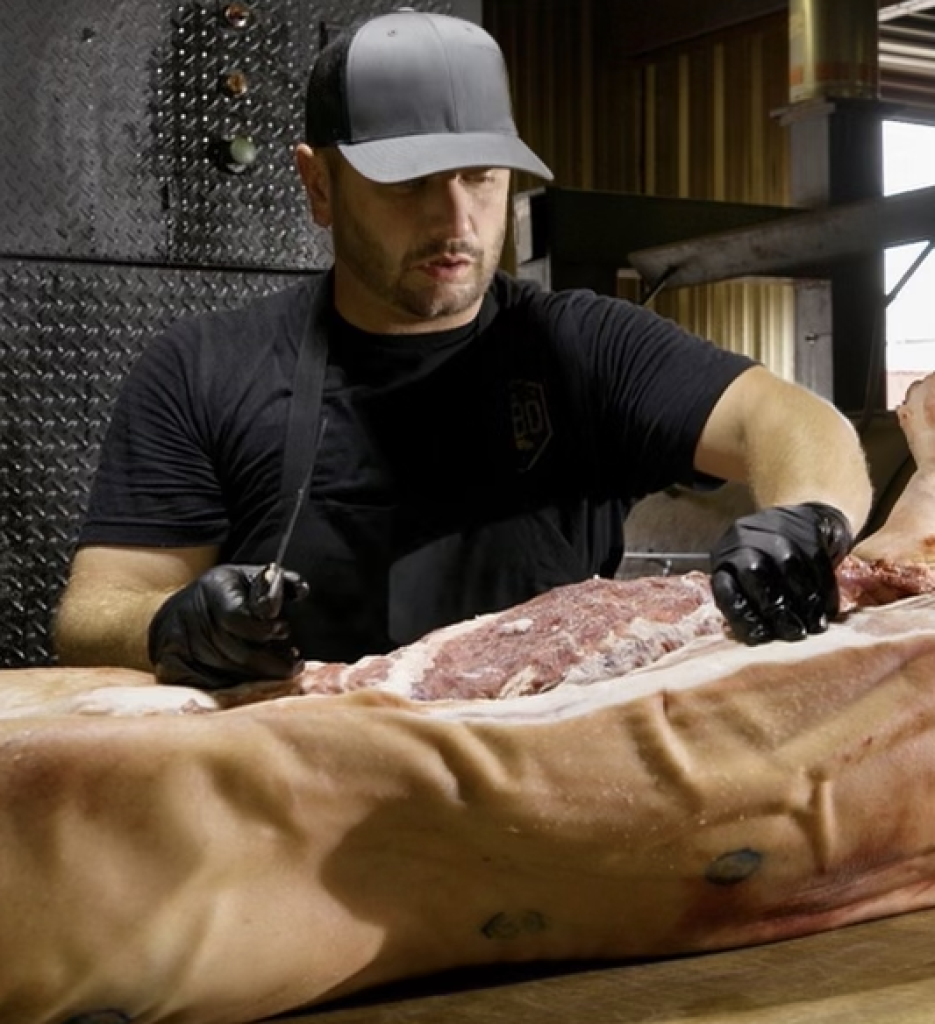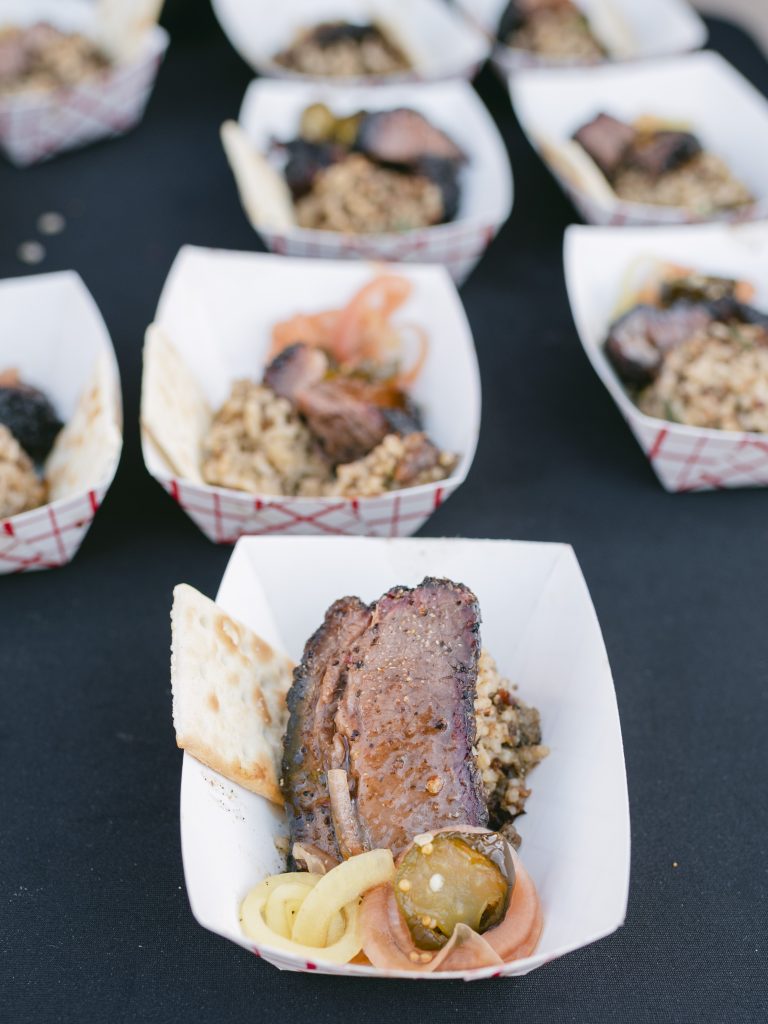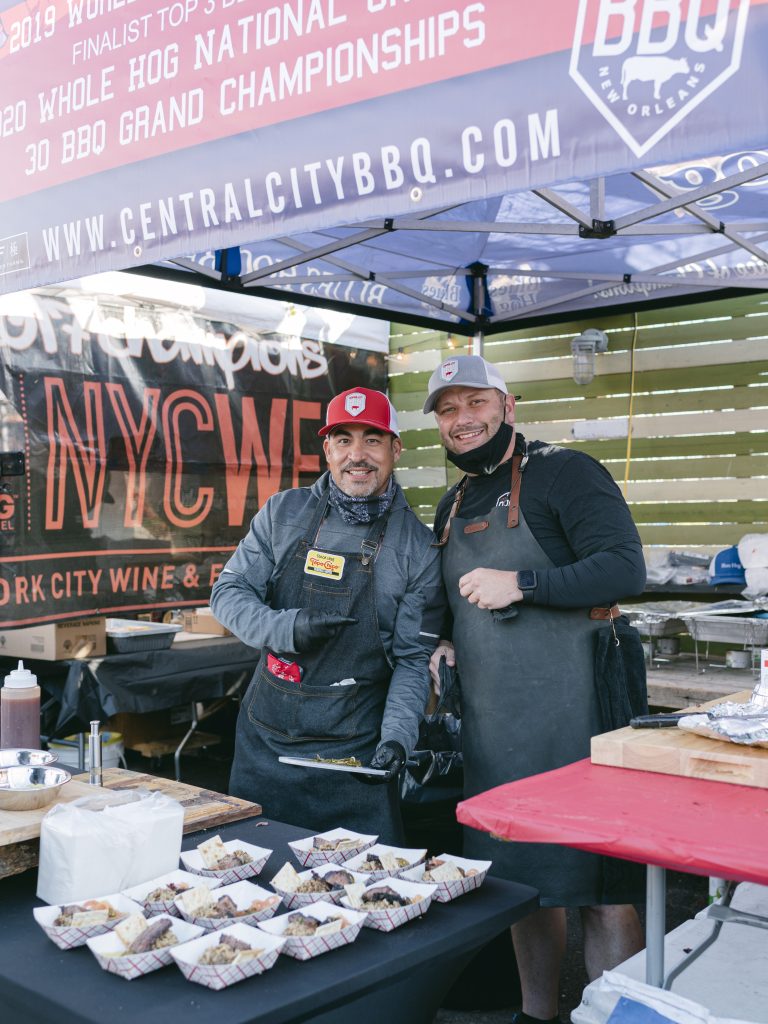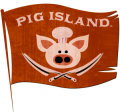James Cruse was the breakout star of Brisket King NYC 2021. He brought New Orleans flair to the event and earned second place overall for his delicious brisket with cajun dirty rice. Since then, James won first place in the rib division at Memphis in May, second place in barbecue at the World Food Championships and left his position at Central City Barbecue to get back into sales, this time for a spice company. We caught up with James to see how he’s been over the past year, hear more about his new position and talk about what he takes away from the competitive barbecue world. James will be joining us again for Brisket King NYC 2022 where he plans on taking home the top prize. Get your tickets now!

Food Karma: Catch us up, what’s going on with you right now?
James Cruse: I resigned from Central City a little over a month ago. It was something that had been in talks for months. I had a couple companies come in to recruit me during that time. Most of my professional career is outside sales and project management, I just happened to be barbecuing for 24 years. I took the offer from one of the companies and I’m back into sales, but in the food world.
It’s called Deep South Blenders. It’s a fifty year old company, and they want to refresh things. We’re going to do a lot of content and marketing stuff that I’m heading up. We specialize in bulk spices and seasonings for fish fries, chicken fries and batters. Down here in the South we do boils. You do a lot of steaming in the northeast, and our boils are different than even the Carolinas where they do the low country boil. Ours is more spicy, a totally different flavor. I’m working for the company that provides the boil seasoning to a lot of restaurants and has their own product line in stores and a handful of other places.
My niche is in the barbecue market. My rubs are on the market already. Now I can blend and co-pack for any barbecue guys and get it ready for distribution. I’m going to use my contacts in the barbecue world to help cooks get into the rub business, or if they’re in it already, try to maybe improve their product.
FK: If a lot of your background is in sales, how did you get into barbecue in the first place?
JC: I started barbecuing when I was in college, before I was ever in sales. Here’s the story about how I got into barbecue: I was playing in a mens football league and I had the guys over. I was in college and I was renting this little place a couple streets over from my parents house. I had this beat up gas grill on my back patio. I told the guys on the team I was gonna cook them some ribs.
I’d never cooked ribs in my life. I went to the local grocery store down here, Winn-Dixie, and bought some beef spare ribs, the kind where there’s only meat between the bones, there’s not meat on top of the bones. I put some creole seasoning on top then put Kraft barbecue sauce on top of that while it was raw and just grilled it and grilled it until it was basically black on all sides. It probably tasted like my steering wheel.
So I contacted my uncle Ronnie who was the smoker of my dad’s side of the family. He would barbecue on the traditional holidays like Memorial Day, July 4th, Labor Day, Easter, Super Bowl Sunday. I said, “Uncle Ronnie, I want you to tell me how to cook ribs.” He said, “I’m not going to tell you over the phone. You need to come here and do it with me.” So I did.
I went over there and cooked ribs with him, and he gave me the basics. 24.5 years later, I’m still a student. I’ve always told people that I’ll never know everything about barbecue. I don’t want to know everything about barbecue because the moment I do I’m giving it up. It becomes boring. Plus, it always evolves. There’s a thousand ways to do things, and it’s constantly evolving. New trends are happening, things are changing, so I want to always stay ahead of the curve. On the competitive side of things, that gives me an advantage over a lot of people. I’ll always be a student. I’ll always stay hungry. I’ll always be driven to be a better barbecue person than I was yesterday.

FK: How did you end up cooking professionally?
JC: My first ever barbecue contest was in 2007. I had cooked with a couple other teams prior to that as a helper, not as the head cook. My cousin and I entered the American Cancer Society Barbecue Throwdown in Laurel, Mississippi. We just figured we’d go out there and do it.
At the time, the difference between the pro level and the backyard amateur level was just a higher entry fee so we entered the pro level. We didn’t expect anything. We figured we’d come in dead last. Well, we took first place in ribs. We got lucky!
After that, the next few months of competing I didn’t do well at all in any category. I knew I was gonna figure it out again. Now I’m jumping into my 16th year of competing. I’ve competed in Memphis in May as the head cook and presenter three times. I’ve done Hogs for the Cause about ten times. I’ve done the American Royal. I just did the Jack Daniel’s World Championship and also just did the World Food Championship on the barbecue side of things.
I don’t remember how I found out about Brisket King, but I was interested, and Jimmy said he would love to have me. It was coming off of a covid year, which was a down year for barbecue competitions. At the time, my biggest accomplishment was third in the world in ribs at Memphis in May. Less than a month later I won the world championship. We’ll give Brisket King all the credit.
FK: Did you cook your ribs differently or were they just the best you’ve ever made them?
JC: What’s funny is I didn’t really like them. I was telling the guys on the team, “I don’t like them, these aren’t going to do well.” I took a bite of one and spit it out. I didn’t think it was as good as two years prior. In 2019, I was a world champion finalist, and we were actually ranked number one going into the finals. We didn’t have the right amount of experience going into the finals and we just dropped the ball on a couple of things. We took third, and I thought those ribs were better than last year’s, but apparently I was wrong. As far as the overall world championship, I lost to Myron Mixon by eight tenths of a point, pretty close. So basically I finished ranked second in the entire world in overall barbecue.
FK: The first time you went to a barbecue competition, did you know what it would be like? If you’ve only ever attended Brisket King or Pig Island, you might think competitive barbecue is a great spectator sport where guests get to eat amazing food but that’s not the case.
JC: I was disappointed the first time I ever went as a spectator. I was disappointed because I thought I could just walk up and try these guys’ food, but you can’t. Brisket King is essentially a people’s choice contest. At a professional contest, you’re cooking food for a white box with no name on it that goes to a judge who doesn’t know who cooked it, so they just score it subjectively and it’s blind.
The first time I went as a spectator I had been barbecuing for eight years and thought I was pretty good. The teams competing wouldn’t give me the time of day. No one would talk to me. I learned what a real competition was. It’s a sport. You’re cooking for points, for money, for trophies, for bragging rights, but it’s taken very seriously because it’s an expensive sport. The second lesson I learned was that I never wanted to be those guys, the one that didn’t give me the time of day.
At the end of the day, my next contest that I’m at there’s the next person like me who’s interested so I’m gonna say hi. We want to grow the sport, and I want to encourage people to get into it. Maybe I’m just too nice of a guy, but I’ve always said that every contest we show up at, if there’s a new person there I want to be set up next to him so I can walk him through stuff throughout the night and help him out. I’m all about growing the barbecue community and helping people out as much as possible.16 years ago you had to find out everything on your own.

FK: What have you taken away from doing so many events?
JC: My biggest takeaway from last year is that it’s just the power of relationships and the people you meet. At the end of the day, we’re all cooking some food in a field or a parking lot. None of us are curing covid, none of us are curing cancer, but we’re all just hanging out, meeting new people, making friends, making new contacts, and that’s the biggest thing. Every time I meet someone new at these things it’s a positive that I can take away from it.
For me, it’s not about collecting trophies, I’m not dusting trophies every week when I’m cleaning the house. It’s about memories and people. The titles and accolades, is that something to be proud of? Absolutely, but it’s really about the people, it always has been.
FK: Do you have a favorite cut to cook?
JC: No, because I don’t want to discriminate against the other meats! I like cooking it all. The crazy part is I don’t really eat a lot of barbecue and I don’t really like to eat a lot of barbecue. I am a fast food junkie. It doesn’t matter what I’m known for or what I can cook. I had McDonalds for lunch today! I was in and out of restaurants and with different people in stores, but I got me a chicken sandwich and a hamburger and that was good.
I did lose 42 lbs from November 2020 through the end of July of last year just kind of cutting out junk, not eating Oreos at night. Then I got covid, and that was an interesting experience. Covid itself wasn’t that hard for me. I never got the fever. I just had a little achiness and I was tired all the time. I can’t stand being tired during the daytime and I just wanted to sleep and curl up in my bed.
A couple days after I was done with covid, all the sudden pneumonia hit me. I had a pulmonary embolism and double pneumonia that put me in the hospital for six days. I survived it and felt better after it was all over than I did prior to having covid. I had a blood oxygen level of 71 and dropping when I walked into the ER. The doctor said I should have died.
That was the closest thing to a near death experience I’ve ever had because I was literally near death. It put a different perspective on things. At the end of the day, barbecue is not the most important thing in the world, it’s really not. I could give it up tomorrow if it’s worth saving a life. My biggest thing was that I’ve always been competitive, I’ve always been a fighter. I was not letting covid beat me. It was about family and friends, It wasn’t even about me. That experience alone really gave me a different mindset, and it allowed me to kind of take a step back a little bit. Winning a world championship is great, but it’s not the most important thing that happened to me last year. The most important thing was that I lived.
